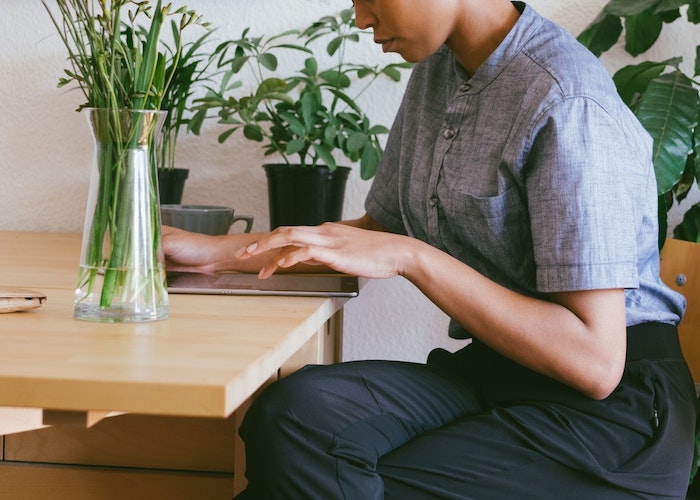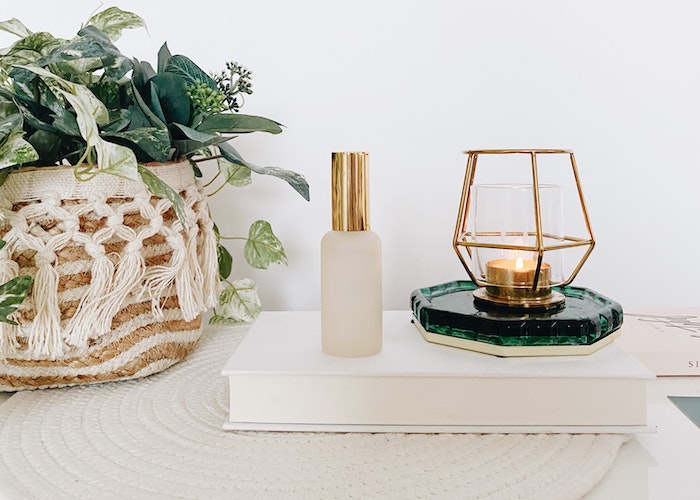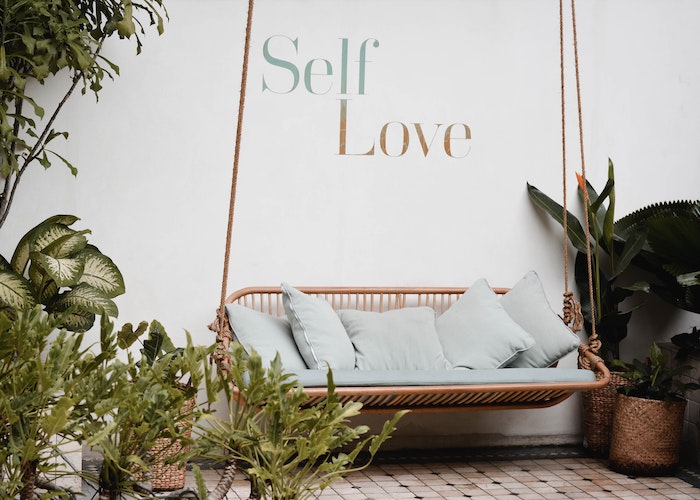How To Keep Your Online Shopping Habit In Check When You’re Sad, Anxious, Or Bored

If you’ve recently stood in front of a stocked pantry and felt a modicum of relief, you’re not alone.
Around the world, people are experiencing dramatic changes in their routines and lives, which can bring stress and anxiety. To cope, they might turn to retail therapy as a way to gain control. Whether it is stocking up on toilet paper, self-care items, clothing, or anything else, sometimes buying things can feel like a source of comfort: We fill our carts, excitedly refresh the tracking page, and look forward to opening our cardboard packages filled with goodies.
Retail therapy is “shopping with the primary purpose of improving the buyer’s mood or disposition.” The definition doesn’t typically include essential supplies, like food, face masks, hygiene items, or medicine. But oddly enough, when we spend impulsively, it tends to be on practical, utilitarian products — items that don’t seem luxurious at all and that we can easily justify as needs. Researchers hypothesize that spending money on utilitarian products makes us feel more powerful when we’re stressed. Moreover, shopping provides us with a sense of autonomy, giving us a temporary reprieve from the unpredictability and chaos that a health pandemic can bring.
However, retail therapy is not a substitute for real therapy. The emotional highs of shopping are followed shortly after by emotional lulls, where we quickly return to our feelings of dissatisfaction and anxiety. In some cases, this might make things worse. If you’ve drained your budget and your savings on spending money to feel better, once that initial rush is over, you’re left with a financial mess on your hands. This can heighten any initial anxiety you were already experiencing.
In order to cope with our emotions in a healthy way, we should address the root of these issues. In uncertain times, like the coronavirus pandemic, we may feel alone, lonely, disoriented, numb, panicked, and worried. We may have days where we feel all these emotions at once and other days where we don’t feel anything at all. That’s normal and expected. Unfortunately, most of us don’t have an unlimited supply of money to purchase items whenever we are experiencing emotional distress. We have to find more productive ways of making ourselves feel better. It starts with breaking the retail therapy cycle: feeling stressed, spending money, then feeling stressed about spending money.
Awareness is a good first step, but there are also some practical steps to take when you realize you’re stress-spending because of the crisis. Next time you find yourself itching to shop online to boost your mood, consider doing the following alternatives — they’re much better for your budget.
- Video chat or call someone you care about. Social distancing can make us feel vulnerable, alone, and stir crazy. Talking with a loved one can be a great source of comfort.
- Take an equal amount of money that you would have spent on your purchases and transfer it into your savings account.
- If you do choose to shop online, purchase items that have a socially-driven purpose, especially those whose proceeds support medical charities or families affected by the coronavirus.
- Be gentle and patient with yourself. Beating yourself up over past mistakes makes you more likely to repeat them. Give yourself a small budget to occasionally indulge, and forgive yourself if you go overboard. This is an unprecedented time, and we are all trying our best to cope.
Let’s remember to be grateful for every moment we are given, recognizing that every person has a unique journey and unique needs. My hope is that you’re in good health, both mentally and physically, as we navigate the coronavirus pandemic.
Julieta Rodrigo is a climate science educator, with a background in STEM and political science. In her spare time, she enjoys volunteering, creating art, and spending time with her family and two cats.
Image via Pexels
Like this story? Follow The Financial Diet on Facebook, Instagram, and Twitter for daily tips and inspiration, and sign up for our email newsletter here.




